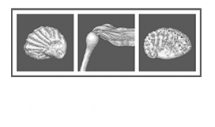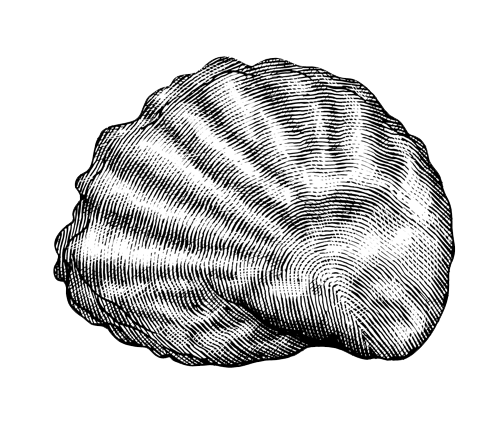In 2014, Puget Sound Restoration Fund (PSRF) began operating a conservation hatchery, called the Kenneth K. Chew Center for Shellfish Research and Restoration, in collaboration with NOAA’s Northwest Fisheries Science Center. The Center is dedicated to research and production of native shellfish and other Pacific Northwest living marine resources. Development of a conservation hatchery was identified as a high-level need in both phases of the Washington Shellfish Initiative, as guided by the National Shellfish Initiative, and as a recommendation of the Blue Ribbon Panel on Ocean Acidification, in the 2012 and 2017 reports (both found here). The facility, located at NOAA’s Manchester Research Station, is operated by PSRF through a cooperative research and development agreement (CRADA) with NOAA to collaboratively conduct and manage research and restoration activities. To learn more, download an overview of our work at the hatchery and an overview of our 2017-2019 biennial hatchery report to Washington Department of Fish & Wildlife.
Our goal is to recover native species that have lost breeding populations, maintain genetic diversity, and research effects of changing seawater conditions.
CURRENT PROJECTS
Olympia oyster restoration
Over 20 million Olympia oyster seed produced at PSRF’s hatchery helps rebuild breeding populations in 19 priority locations in Puget Sound to support on-the-ground restoration efforts.
Pinto abalone rebuilding
PSRF, WDFW and partners have developed state-of-the-art techniques to raise pinto abalone at the hatchery. ~50,000 juveniles have been outplanted to date, in efforts to restore this vanishing species.
Recover bull kelp populations
PSRF is leading the development of bull kelp restoration methods and broad-scale monitoring initiatives. Our kelp lab, established with NOAA, can propagate kelp for both restoration and mitigation.
Sugar kelp cultivation
With funding from the Paul G. Allen Family Foundation and the U.S. Navy, PSRF has cultivated sugar kelp on spools at the hatchery, which were outplanted and harvested as a core element of research with partners on the ability of sugar kelp cultivation to improve seawater conditions or shelter sensitive species.
Sea cucumber seed production
PSRF and partners are developing hatchery technologies for giant red sea cucumbers that improve production reliability, hatchery efficiencies and fill critical knowledge gaps in the culture of these unique invertebrates. Stay tuned as the project proceeds and we share findings about our sea cucumber cultivation!
Cockle cultivation
In an effort to improving access to cockles for subsistence harvest, PSRF is working with the Suquamish Tribe to produce cockle seed at the hatchery amongst other rebuilding strategies. Click on the link below to read a great piece from Crosscut on our multi-faceted cockle work!
COLLABORATION
At the Chew Center, collaboration is central to the meaningful research undertaken to advance PSRF’s restoration programs and improve our understanding of the Puget Sound marine ecosystem. Since opening, PSRF and partners have conducted research on Olympia oysters, pinto abalone, bull kelp, sea cucumbers, cockles, rock scallops, geoduck, and Pacific oysters. We use conservation aquaculture techniques to advance genetic research, improve culture practices, and study impacts of climate change. We have hosted and mentored 17 student interns, 9 graduate students, and 3 post-doctoral researchers. Please reach out to us if you are interested in collaborating! Through our production programs, we have supported additional research by providing larval and juvenile animals to partners throughout the United States. Our collaborators and partners include:
Academic partners: University of Washington, Western Washington University, Evergreen State College, University of Chicago, University of Rhode Island, Olympic College
Tribal partners: Suquamish Tribe, Jamestown S’Klallam Tribe, Swinomish Indian Tribal Community, Skokomish Indian Tribe, Port Gamble S’Klallam Tribe and Nisqually Indian Tribe
Government agencies: NOAA, Washington Department of Fish and Wildlife, Environmental Protection Agency, Washington State Department of Health, U.S. Department of Agriculture/Natural Resources Conservation Service, Washington Department of Ecology including Washington Conservation Corps, Washington Department of Natural Resources, Marine Resources Advisory Council
Non-governmental Organizations & Industry Partners: Pacific Shellfish Institute, Port Townsend Marine Science Center, Pacific Northwest Research Labs, Seattle Aquarium, Pacific Hybreed
FUNDING. Beginning in 2017, the Washington State Legislature and Governor Inslee have provided $448,000 each biennium to help support PSRF’s shellfish conservation hatchery at the NOAA Fisheries Manchester Lab. The funding is administered by Washington Department of Fish & Wildlife. Base level funding from the state, which covers approximately 50% of operating costs, makes it possible for PSRF to implement state priorities and culture oyster, abalone, kelp, and other species to support restoration, mitigation, and research. NOAA also provides support to meet overall facilities needs at Manchester. Many thanks to the Governor, the Legislature, the Marine Resources Advisory Council, and all those who have championed this funding request. We are also thankful to The Benjamin and Margaret Hall Foundation for support for the Center.
PUBLICATIONS. Research conducted at the Chew Center has yielded the following scientific publications to date, with several others in development.
- Spencer LH, YR Venkataraman, R Crim, S Ryan, MJ Horwith, SB Roberts. 2020. Carryover effects of temperature and pCO2 across multiple Olympia oyster populations. Ecological Applications 30(3):e02060
- Venkataraman YR, LH Spencer, SB Roberts. 2019. Larval response to parental low pH exposure in the Pacific Oyster Crassostrea gigas. Journal of Shellfish Research 38(3):743-750
- Silliman KE, TK Bowyer, SB Roberts. 2018. Consistent differences in fitness traits across multiple generations of Olympia oysters. Scientific Reports 8:6080
- Heare JE, B Blake, JP Davis, B Vadopalas, SB Roberts. 2017. Evidence of Ostrea lurida (Carpenter, 1864) population structure in Puget Sound, WA, USA. Marine Ecology 38:e12458
- Kroeker, KJ, RL Kordas, R Crim, IE Hendriks, L Ramajo, GS Singh, CM Duarte, J-P Gattuso. 2013. Impacts of ocean acidification on marine organisms: quantifying sensitivities and interaction with warming. Global Change Biology 19(6): 1884-1896.
PHOTOS & VIDEOS
- Continuous filtered seawater supply
- Temperature, pH controlled seawater
- Ocean acidification research
- Microalgae culture
- Dedicated kelp lab for propagation and research
- Floating dock w/Floating Upweller System (FLUPSY)
- Tideland shellfish nursery
MEDIA
- Suquamish Tribe revives cockle population for tribal harvest. NW Treaty Tribes, 2022.
- Can aquaculture overcome its sustainability challenges? Nature Outlook, 2020
- Delicious and now endangered: Can the pinto abalone make a comeback?, Salish Sea Currents Magazine, Encyclopedia of Puget Sound, 2020
- A tale to warm the cockles of your heart, Gastropod, 2020
- Ocean acidification impacts oysters’ memory of environmental stress, UW Today, 2020
- For sustenance and tradition, Puget Sound tribes and scientists join forces to breed millions of clams. Crosscut, 2019
REPORTS & PROGRAM SUMMARIES
LOOKING AHEAD
As we continue to build the Chew Center into a long-lasting hub of restoration and applied research focused on native shellfish, kelp and other living marine resources, we have identified the following ambitious set of projects, some of which are underway and others that have not yet begun. Please reach out if you are interested in collaborating on this work!
1. Conduct research to advance PSRF’s in-water Olympia oyster restoration practices
- Explore alternative settlement substrates for Olympia oysters
- Further quantify filtration rate of Olympia oysters
- Explore genetic drift as potential driver of population genetic structure in Olympia oysters through:
- Pair-mating lab experiments
- Temporal characterization of genetic structure of Olympia oyster recruits at monitoring sites
2. Improve ability to produce diverse shellfish and kelp species reliably and consistently to achieve Tribal, State, stock rebuilding and ecosystem recovery goals
- Improve post-settlement mortality in pinto abalone by:
- Understanding microbiome dynamics
- Optimizing settlement cues and stocking densities
- Testing efficacy of probiotics
- Genetics of hatchery-produced seed
- Compare genetics of hatchery-produced Olympia oyster seed versus wild populations
- Genetic makeup of hatchery-produced abalone at restoration sites
- Population genetic structure of bull kelp
- Resilience of hatchery-produced seed to ocean acidification
- Can maternal exposure to low pH result in more resilient offspring for Olympia oysters and pinto abalone?
- Develop pinto abalone sperm cryopreservation techniques
3. Research and culture cockles, sea cucumbers, and other native species for Tribes to increase access to traditional first foods and address declines in the availability of culturally important species.
- Sustainable aquaculture of cockles
- How to feasibly raise cockles in a hatchery?
- What is the population genetic structure in cockles?
- Develop techniques for sea cucumber aquaculture
- Optimize juvenile grow-out techniques
- Produce a hatchery manual for sea cucumber cultivation
- Impacts of ocean acidification
- Interactive effects of ocean acidification and temperature on basket cockles
- Littleneck clam population decline
- Impacts of climate change on littlenecks
- Dungeness crab larvae
- Monitor annual larval crab abundance in Clam Bay as part of larger scale Puget Sound monitoring effort
4. Build stronger hatchery research collaborations with academic and agency partners
- Continue to collaborate with NOAA on a Navy-funded research project to measure the effect of kelp cultivation on seawater chemistry
5. Train the next generation of conservation and restoration scientists and practitioners
- Establish an annual 2-week Restoration Aquaculture Training course with NOAA, UW, Pacific Hybreed, and other partners
- Host an annual summer internship program to provide opportunities for Tribal and other underrepresented students
CONTACT Ryan Crim, Hatchery Director | ryan@restorationfund.org

